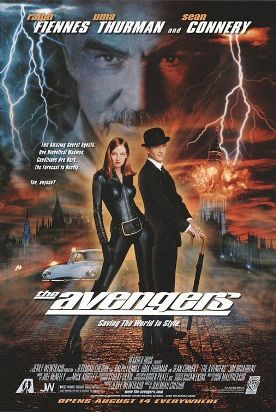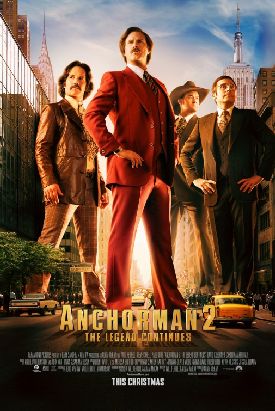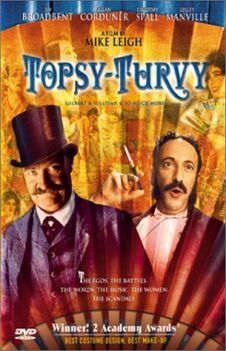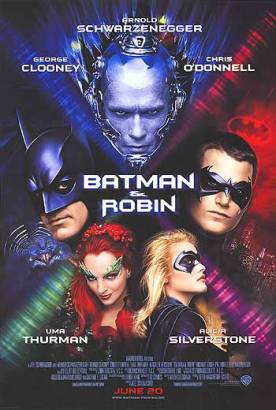Kicked in the Head
Kicked in the Head directed by Matthew Harrison and co-written by him
and the film’s star, Kevin Corrigan,
is another of those slacker movies whose makers got far too much money far too
early in their careers. This is a movie so immature in its conception, its
writing and its execution that even in spite of such stars as Linda Fiorentino,
James Woods and Burt Young, it looks like an amateur college production. Messrs
Harrison and Corrigan appear to remain in that callow age of youth which has yet
to learn even so simple a lesson as that what appears riotously funny when
you’re stoned is often not funny at
all to sober people who have paid seven bucks apiece and upwards to watch.
You’d would like to think that they
will learn this as a result of this
film’s being a total flop, but movies
as bad as this by Richard Linklater and Kevin Smith have been moderately
successful (to their authors’
considerable detriment) and so may this be.
The story consists of the miscellaneous and picaresque adventures of a young
man called Redmond (Mr Corrigan) who has either been burned out or evicted from
his apartment (the story varies with successive tellings) and goes to
“crash”
at the apartment of his friend, one Stretch (Michael Rapaport). On the way
there, his Uncle Sammy (Mr Woods), an obvious no-good, commissions him to
deliver a bag of cocaine to someone he will meet at a subway stop. Redmond is so
uncurious that he doesn’t even realize
what is in the bag until he is almost at the drop, and then he is distracted by
a weeping flight attendant called Megan (Miss Fiorentino) who is on her way to
JFK. He attempts to introduce himself, but she brushes him off. Nevertheless, he
decides that she is the goddess of his devotion.
As Redmond arrives at the appointed subway station, one man comes to meet him
and another comes behind him and starts shooting at him. There is a lengthy
exchange of fire, but no one gets hit. This effectless gun-play happens several
times more in the movie. Redmond decides to return to Stretch without either
delivering or returning the bag. Stretch, a beer distributor whose competitors
have recently decided to “take a very
un-American attitude to my competitive
pricing,” offers Redmond a job, but
Redmond says to him as he originally said to Uncle Sammy that he is
“on a quest for
truth” and
“a voyage of self
-discovery”—or, and this seems
to be virtually the same thing to him,
“going through a self-destructive
phase.”
By this time we begin to notice that the style of the screenplay is a sort of
quasi-formulaic repetition of certain phrases. The
“voyage of
self-discovery” etc. are only used a
couple of times, but they set up the expectation of repetition. Uncle Sammy is
repeatedly said to be “in deep doo
doo” and when he sees Redmond he tells
him that he, Sammy, is “the luckiest
man alive” (though everyone else calls
him a loser) and to call his mother. He also says,
“you got any small bills; I only got
big bills and I don’t want to break
them.” Then he relieves him of all his
money and says: “This way it all stays
in the family.” Also, every time he
meets Sammy, there is a
“That’s
good/No that’s
bad” routine which tries and fails to
sound natural.
It is an interesting writing concept and lends something of the flavor of
traditional epic to this Bildungsroman in celluloid, but the overall
conception is so juvenile that it is hopeless to try to imbue it with gravity by
such a means. The framework is too light to bear it. What purports to be the
general idea, summed up in Stretch’s
typically mangled rendering as “Life
is what happens to you when you’re
afraid of s***,” is a good one, but it
seems to have nothing much to do with what actually happens. Moreover, it
requires more sympathy that we can muster for a central figure whose quest for
truth produces nothing but adolescent behavior and adolescent poetry:
How can I possibly hope,
When hope becomes a rope
Dancing around my neck,
Dancing around my neck.
He’s right there, anyway. His only
hope was to grow up before making a feature film, but they
wouldn’t let him do it, poor
fellow.
Discover more from James Bowman
Subscribe to get the latest posts to your email.







